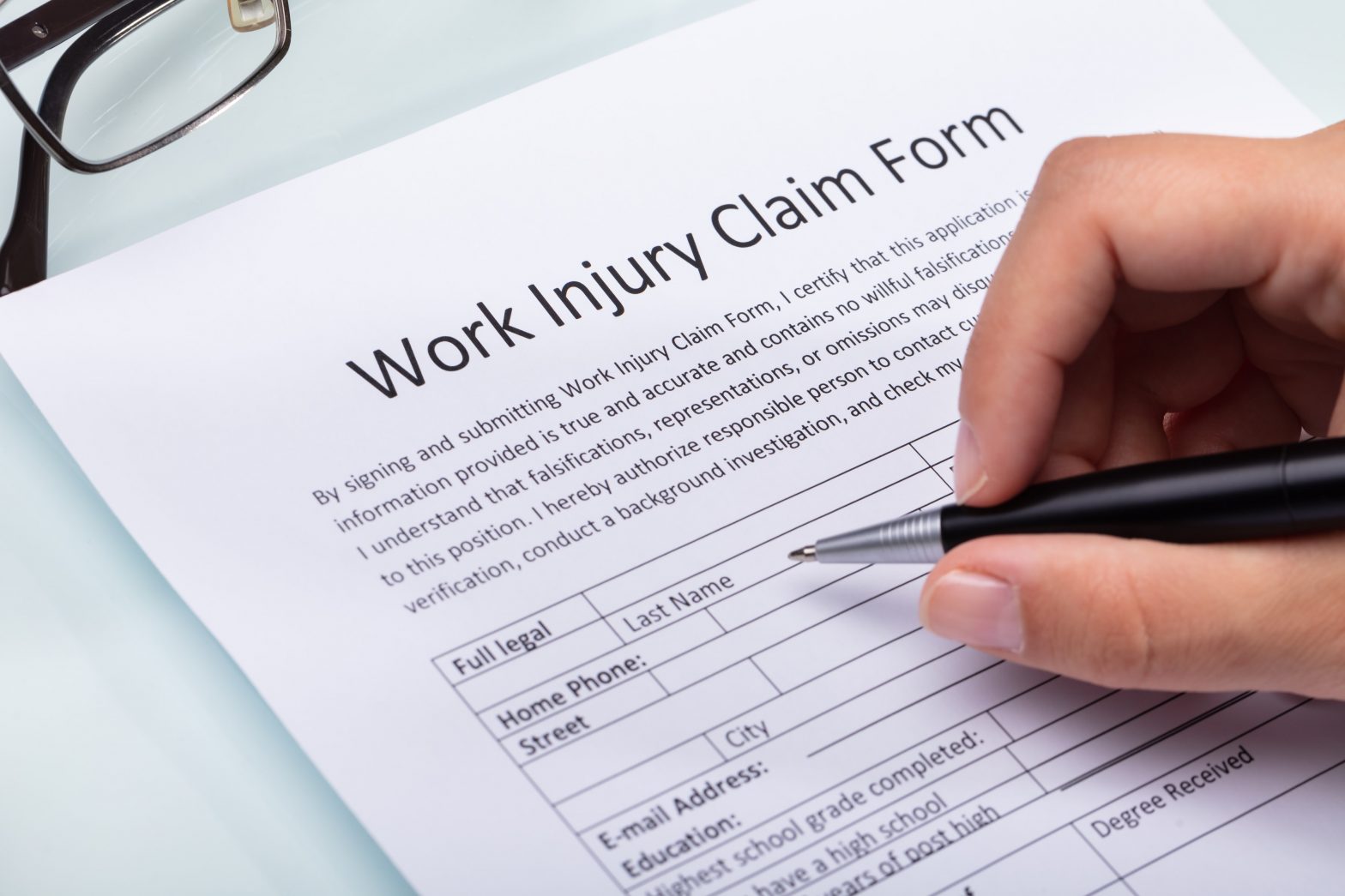
When you’re injured on the job, you are entitled to workers’ compensation benefits to help you with the financial repercussions of your injury. While the process may seem straightforward, the entire workers’ compensation process in Pennsylvania can be somewhat complicated.
Insurance companies want to minimize their financial risk and may initially deny claims or offer a settlement that doesn’t fully cover the financial loss of the injured worker. Plus, there are certain steps to take after an injury to protect your rights, and if anything is missed, it could jeopardize your compensation. If you’ve been injured on the job, it’s important to understand how the PA Workers’ Compensation Act works and how the program benefits you as the injured worker.
Let’s take a look at the basics of workers’ comp and what kinds of accidents lead to workers’ compensation claims. We will also answer some of the most frequently asked questions we get as workers’ comp attorneys in Central Pennsylvania.
Workers’ Comp Basics
Workers’ compensation in Pennsylvania started in 1915 with the PA Bureau of Workers’ Compensation Act. This statute tasked the Department of Labor and Industry as well as the Bureau of Workers’ Compensation to administer and oversee the administrative and appeal obligations in the workers’ comp process.
Over the years there have been amendments and changes to the Workers’ Compensation Act, but the purpose remains the same – to protect both the employee and the employer in the event of work-related injuries. Through the act, the employee receives medical treatment and compensation for lost wages and the employer is protected from direct lawsuits.
If you work in Pennsylvania, you are likely covered by workers’ compensation insurance through your employer, as it is mandatory for most companies. Companies that do not carry workers’ comp insurance are at risk of lawsuits by employees and even criminal prosecution by the state.
If you are injured on the job, the workers’ compensation process starts when you report your injury. Typically, the steps involved include:
- Reporting your injury to your employer. While you have up to 120 days to report your injury, notify your employer as soon as possible, preferably in writing. If you notify your employer within 21 days, your wage loss benefits will start on day one. If notice is given beyond the 21-day mark but prior to the expiration of the 120-day period, indemnity benefits—if warranted—will begin on the date notice is given. Make sure to be specific about your injury and ask for copies of the injury report.
- Requesting a list of approved workers’ comp physicians. Under PA workers’ comp law, you are required to see one of the doctors or urgent care centers on your employer’s “panel list.” You are required to use these medical providers for the first 90 days after your injury.
- Seeking medical treatment. Even if you feel your injury isn’t noteworthy, you should still seek medical attention from the approved “panel list.” Documentation is key in workers’ comp cases, and having your injury on record can be critical should your condition worsen.
- Start and complete paperwork. Once you’ve reported your injury to your employer, they are required to give you the proper forms to move your claim forward. Be proactive and ask for these forms if they are not immediately provided. Typically, your employer will provide forms for their insurance company and a form to report your injury to the Workers’ Compensation Bureau, along with information about your rights and how to return to work. Has your employer not provided you with paperwork? This may be an indication that they are not reporting your injury to the state; in this case, seek counsel from an experienced workers’ comp lawyer right away.
While the process seems straightforward, many workers’ comp claims become complicated, especially when they are denied. In most cases it makes sense to reach out to a workers’ comp attorney to understand your rights when you’re hurt on the job.
What Kinds of Accidents Lead to Workers’ Compensation Claims?
Workers’ comp claims cover most injuries on the job, whether it’s the result of a slip and fall on an icy sidewalk or a catastrophic injury caused by commercial equipment. There are exceptions, of course, most notably if the injury is self-inflicted, or if drugs or alcohol were involved.
The most common types of accidents that lead to workers’ comp claims include:
- Slips and falls: These can be caused by untreated sidewalks, wet floors, raised doorways, loose mats, or a fall from a ladder or other height.
- Strains and sprains: Sprains accounted for the most workers’ comp claims in 2019, at 36.8% of all total claims in the state. Strains and sprains can occur when someone is bending, lifting or twisting.
- Struck by an object: A worker can be hit by falling inventory from stock shelves or hit by moving objects such as a vehicle or forklift.
- Repetitive injury: Repetitive motions at work can cause repetitive strain injuries or RSIs. These kinds of injuries happen when a muscle or tendon is used over and over again in the same way. Carpal tunnel syndrome is an example of an RSI.
After reporting your injury to your employer, the insurance carrier will expect you are on a path to return to work after you are well enough to do so. Be aware that the insurance company will conduct an investigation into the extent of your injuries and may even hire a private investigator to follow you to gather information about your injuries. To best protect your rights, contact a workers’ comp attorney so they can advise you on the best path to receive full benefits.
Common Workers’ Comp Questions
For decades, our top-rated team of workers’ comp attorneys has fought for the rights of injured workers in Lancaster County and Central Pennsylvania. Here are a few of the most frequently asked questions we receive from our clients:
- Can I be fired for filing workers’ comp? It is illegal for an employer to fire you for filing a workers’ comp claim. You can, however, lose your job for other reasons such as a company downsizing. In this case, you would still be eligible to receive workers’ comp. If you feel you were fired for filing a claim, consult with an attorney.
- Do I have to tell my employer before filing a claim? You may be denied benefits if you do not notify your employer in a timely manner after a workplace accident.
- Is there a statute of limitations to file a workers’ compensation claim? In general, you have 120 days to report your injury to your employer. Injuries reported after day 21 may not be eligible for full benefits. It’s in your best interest to notify your employer immediately after a workplace injury. If you receive a denial of your workers’ comp claim, you have three years from the date of injury to file the appropriate Petition(s) with the Bureau of Workers’ Compensation.
- Are there any forms I shouldn’t sign? After a workplace accident, your employer and their insurance carrier may ask you to sign several forms including a release of liability and an accident report. Some of these forms may be confusing – either intentionally or unintentionally. Never sign a form until you’ve had it reviewed by an attorney.
- What benefits are covered under worker’s comp? Under the Pennsylvania Workers’ Compensation Act, injured workers are entitled to wage-loss benefits (lost wages), medical care benefits, specific loss benefits (an injury or loss of body parts), and disfigurement benefits.
- Should I take a lump sum settlement? Some insurance companies will offer a one-time lump sum settlement for a workers’ comp claim. In most situations, the insurance company is probably going to try to give you an amount of money that is lower than what you deserve. Before taking a lump-sum settlement, talk to an experienced workers’ compensation attorney.
- What should I do if my claim is denied? In Pennsylvania, you have up to three years from the date of your injury to dispute a Notice of Workers’ Compensation Denial from your employer’s workers’ compensation insurance company. We recommend filing as soon as possible, though, so you can receive the benefits you deserve without waiting months or years.
There are no dumb questions when it comes to workers’ compensation. The process is complicated and can be exhausting for an injured worker. If you have questions about your workers’ comp claim, reach out to us for a free consultation and review of your case.
Your Workers’ Compensation Law Firm in Lancaster, Pa.
Georgelis, Larsen & Sabatino Injury Law Firm, P.C. focuses its practice solely on workers’ comp and personal injury cases. Our decades of representing injured workers have given us a unique and thorough understanding of how the process works, how injured employees can protect their rights, and how to navigate an appeal for a denied claim.
Your employer has a team of attorneys working to minimize their financial obligation after a workplace injury, and you deserve the same representation. Our team of compassionate, aggressive, and experienced workers’ comp lawyers is ready to take on the legal system for you. When you’ve been hurt at work, you need to focus on recovery, not on paperwork and legal proceedings. Contact us today at 717-394-3004 for a free consultation, or connect with us online. We will evaluate your case – free of charge – and we do not take a fee unless we win money for you or successfully protect your benefits in court.





